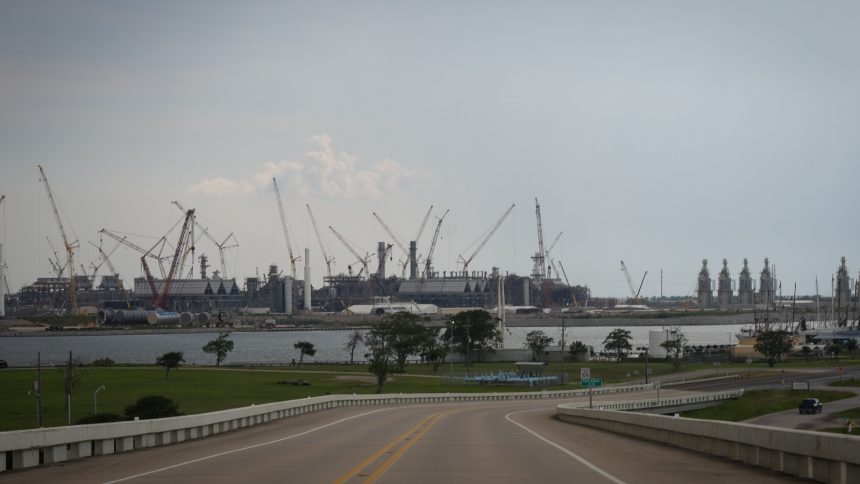Environmental activists and community organizers along the Gulf Coast have been working tirelessly to persuade the Biden administration to put a stop to the construction of terminals that export liquefied natural gas, or LNG. The dramatic increase in U.S. production of natural gas in recent years led to the building of large coastal facilities designed to liquefy and ship the fossil fuel to international markets. In response, activists staged protests, organized sit-ins, wrote letters to members of Congress, and successfully made LNG their “next big climate test” under the Biden administration.
Following the announcement that the administration would pause its approval of new LNG terminals, climate advocates, including Bill McKibben, founder of 350.org, credited the movement for the victory. The decision came about after senior administration officials, including White House climate adviser Ali Zaidi, took note of young activists on TikTok raising awareness about the climate impact of LNG. The White House collected numerous quotes from climate advocates praising the decision, but activists noted that the environmental impact of curbing LNG exports is uncertain.
Aside from climate concerns, thousands of manufacturers, chemical companies, and consumer advocates have quietly been advocating for the pause on LNG exports. They argue that it would help curb the unpredictable price of natural gas in the U.S. and thus benefit their operations.
In contrast, low-income households would see relief from higher energy bills if LNG exports were limited. Organizations representing these households, such as the National Energy Assistance Directors’ Association, emphasize the impact of natural gas price hikes on families and advocate for a balanced approach that considers their needs.
Similarly, the Industrial Energy Consumers of America has been arguing against LNG exports representing manufacturing facilities nationwide. A halt to LNG exports would help stabilize natural gas prices for these heavy industries that rely on the fuel for operations.
The potential benefits of limiting LNG exports are widely acknowledged, but it remains to be seen whether it will have a broader economic impact. Both environmental groups and manufacturing organizations support the government’s need to study and understand how this decision will address the climate, environmental, and economic impacts effectively.
The U.S. is experiencing an escalating demand for natural gas, often driven by extreme weather conditions like hotter summers that strain the power grid. This, along with the impact of further rising natural gas prices on their households, is a significant concern for climate and industrial advocates.
In light of this complex situation, the Biden administration has halted the approval of new LNG terminals to fully understand the economic and climate implications. The current state of the global natural gas market has made it more volatile and unpredictable than ever before. Consequently, allowing a significant share of American natural gas supply to be shipped overseas poses an even greater risk of price impacts in the U.S.
In conclusion, the debate on limiting LNG exports touches on complex economic, environmental, and climate issues that require a balanced and detailed approach. Whit this in mind, the Biden administration seeks to carefully evaluate the potential impacts to ensure a suitable and effective decision.






